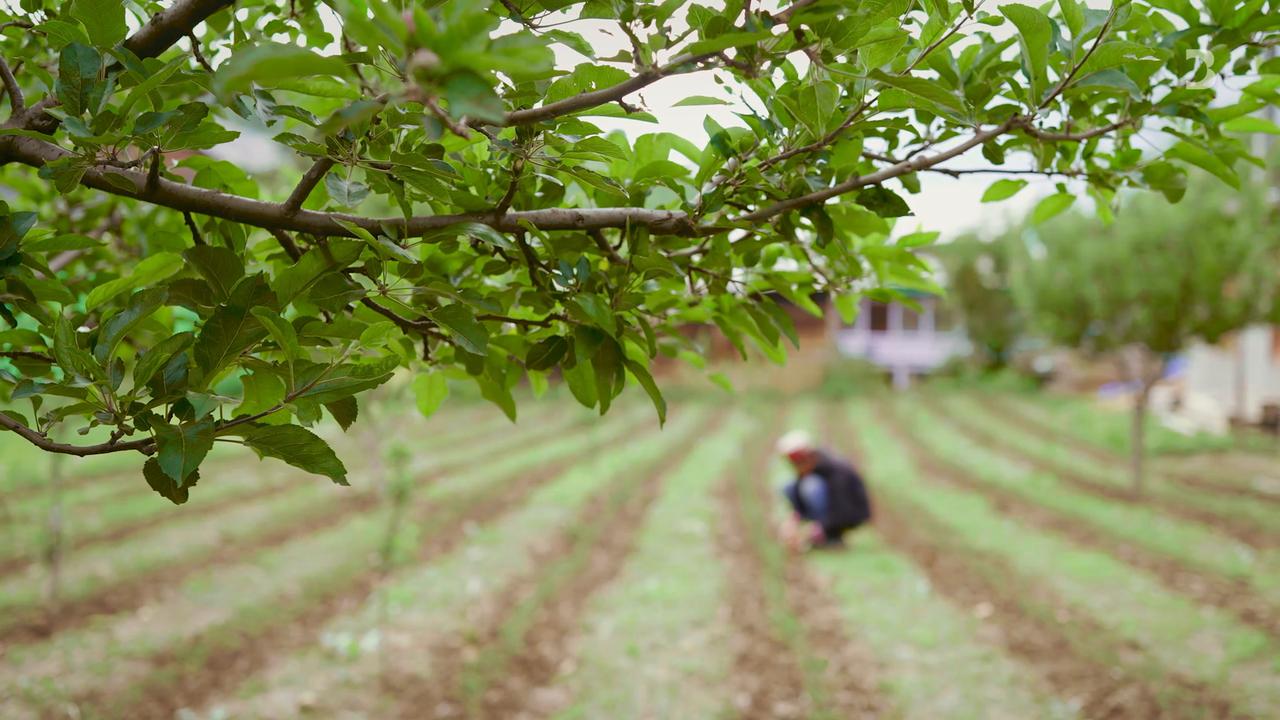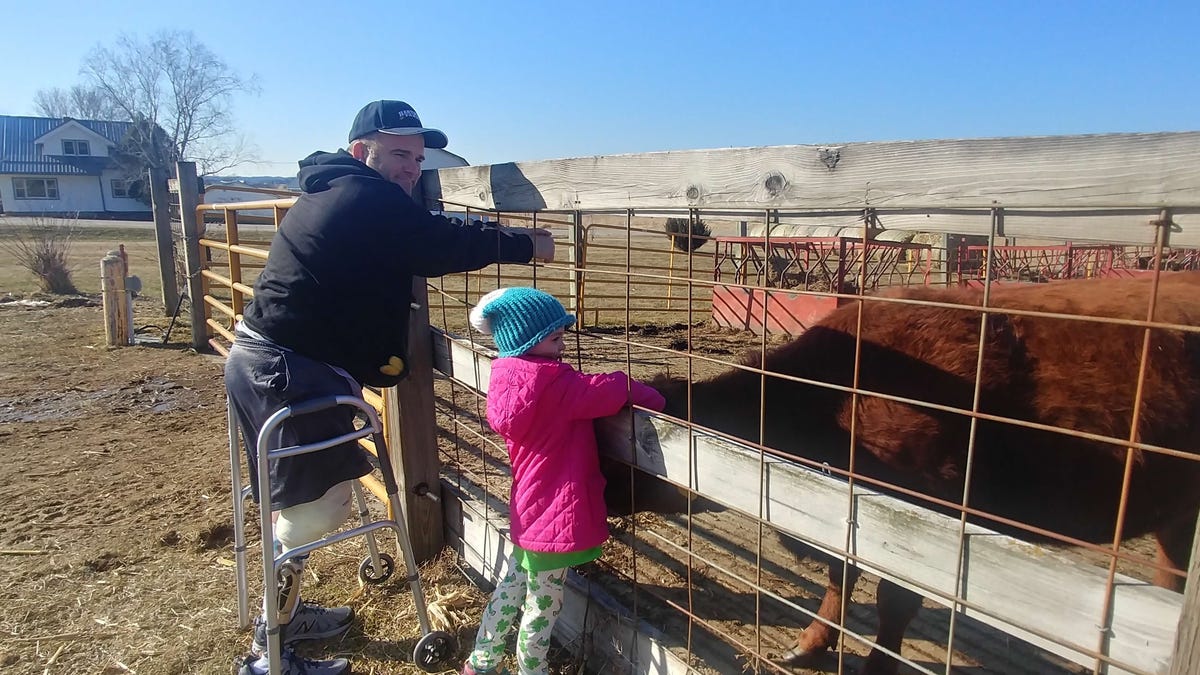This farm family’s resilience shows the strength of agriculture – and what we stand to lose.

How robots and AI are changing farming
Robotics and AI are reshaping how food is grown. An innovative robotics farm equipment company shares how AI is impacting the future of farming.
Bloomberg – Quicktake
It happened so quick – the tractor’s hose snagged Nathan Brickl’s ankle and the next thing he knew it was yanking him down the bank. He slid 30 feet, then slammed against the roadside. When he stopped he saw that he was stuck, one leg in a culvert and the other twisted behind his back with his work shoe up near his head.
He looked to the sky. It was overcast, and about to snow.
“Well, two ways this is gonna go down,” he told the Lord as he said a prayer. “Either you take me now … or you give me the strength to get through this.”
As he says now, “He did the latter.”
In fact, Brickl, 48, and his family found the kind of resilience born not just of the hard work so common in Wisconsin farm country, but also of the emotional journey and community support it takes to truly overcome tragedy. Their story reminds us during June’s National Dairy Month of the legacy of resilience we have in farm families descending from Wisconsin’s Dairyland tradition – and all we have to lose if American family farms don’t survive.
Humor and resilience after horrific farm accident
It was a regular morning. Brickl was working at his side job on another farm in late fall of 2019, helping to roll up the large hose that carried pig manure. He and the man driving the tractor pulling the hose were the only ones around when the hose shifted and caught Brickl’s ankle.
He spent 45 minutes jammed in the culvert, praying, thinking about not wanting his wife to see him die, wondering what life would be like if he made it. When the crew arrived, they had to cut him out of the culvert before taking him by ambulance and helicopter to Madison.
All along the way, he wrestled with fears and searched for strength. He drew on his matter-of-fact sense of humor ‒ and maybe the heavy dose of pain medication. When they were five minutes out from Madison, a first responder asked if he needed anything.
“Yeah, can we circle the Capitol before we land at the hospital?”
Meanwhile, his wife, Brigitta, was trying to be there not only for her husband but also their farm in rural Troy township. She had left work, making stops to arrange for the care of their then-5-year-old daughter, and at the office of Nathan’s job, where she got a moment to speak to him by phone.
All along the way, her mind had been racing, “What am I gonna do as a widow? How am I gonna break this to my child?” When she finally heard his voice, she took a breath and braced herself for the work to come.
Fighting for the farm with help from friends, family and strangers
Brickl would live, but it would be a long road back to the farm. The doctors amputated his right leg and put rods in his left foot. While he held on in the hospital, his wife fought for all they had.
There was speaking up for her husband and tracking his care, and then there was the farm. There were cash crops standing in the field, in need of harvesting if they – and the income they represented – were to be saved, along with cattle requiring daily work.
The community answered the call. There were the trusted friends and family who helped with the farm work, came to the hospital, cared for their child. There were the total strangers who donated money.
The emotional work remained. At one point, Brickl confessed the fear that his wife might be better off leaving him.
“You didn’t sign up for this.”
“Do not worry about our relationship,” Brigitta said. “I’m not going anywhere.”
There were other, darker moments, when he contemplated ending it all – the very real risk of suicide that comes all too often when farmers wonder if they’ll be able to go on. He got through them talking with his wife, and thinking of his little girl.
His first steps were hard fought. It took months of therapy and work before he finally got up on his prosthetic leg. And it wasn’t until he was back at the farm, cutting hay on the back of a tractor, that it felt real.
It’s been years more of work and modifications to the farm – with help from loved ones and grant funding – but they’re still farming. Nathan and Brigitta know it also took a deeper strength they found, in those quiet moments of care.
“You can’t give up on each other,” Brigitta said. “And you can’t give up on yourself.”
Brian Reisinger is a writer who grew up on a family farm in Sauk County, Wisconsin. He contributes columns and videos for the Ideas Lab at the Journal Sentinel, where this column originally appeared. He is the author of “Land Rich, Cash Poor: My Family’s Hope and the Untold History of the Disappearing American Farmer.” He splits his time between Sacramento, California – America’s “farm-to-fork capital,” near his wife’s family – and the family farm in Wisconsin. Reach him at brian-reisinger.com








